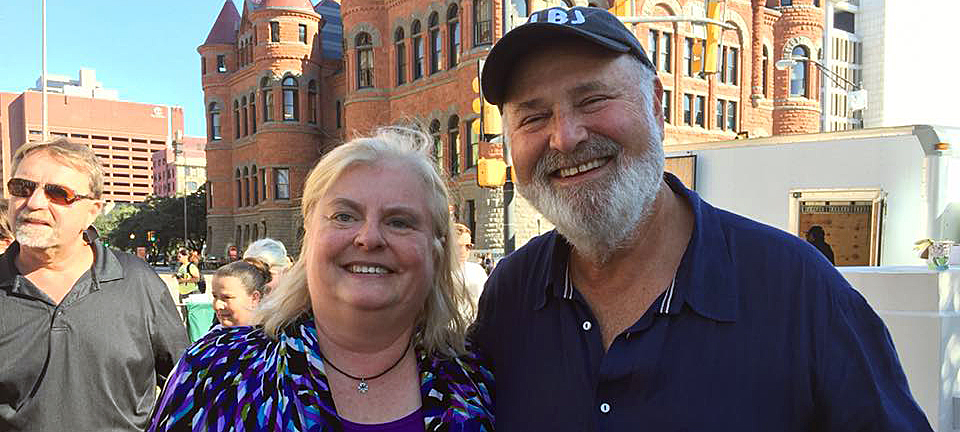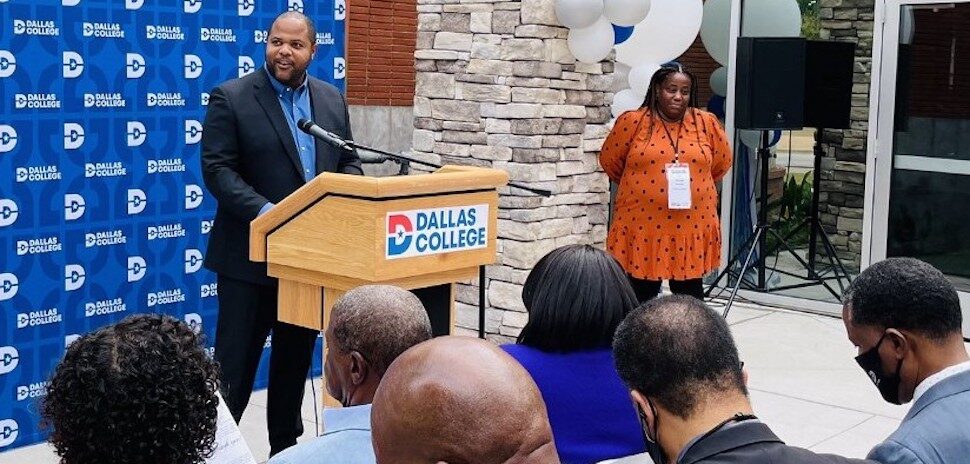DI ADVISER Q&A: THE COMMISSION’S DIRECTOR FINDS INNOVATIVE WAYS TO LURE PRODUCTIONS
This is the first in a series of question-and-answer sessions with a Dallas Innovates’ Adviser.
When many people think of Dallas, they think, well, “Dallas”—the 1980s television hit program, along with its reboot from recent years.
It’s Janis Burklund’s job to help Hollywood remember there is more to North Texas than Parker’s Southfork Ranch (home to the fictional Ewing clan.)
As director of the Dallas Film Commission, Burklund has helped land shoots for Rob Reiner’s “LBJ,” a Hulu adaptation of Stephen King’s “11.22.63,” and even a network pilot for Fox’s “Frankenstein.”
Burkland, an adviser for Dallas Innovates, recently answered a few questions about innovation in the film industry.
What makes the Dallas Film Commission an innovator?
Working with the entertainment and creative media industries requires us to continually adapt to new ways of doing business due to disruption in the industry and ongoing changes in the way business is done.
“North Texas also has a diverse, creative, and competitive workforce. All these attributes are essential in creating an innovative community.”
What is the most exciting innovation in your organization’s industry at the moment, and why?
Disruption in distribution is causing increased need for content. As Bloomberg Businessweek recently noted:
“The U.S. television industry aired a record of more than 400 scripted series in 2015, up from 352 the previous year. In 2016, Netflix alone will devote $5 billion to programming, whereas Time Warner’s HBO plans to spend more than $1 billion on original series.”
This unprecedented increase in production, along with new technological advancements with digital streaming (i.e. cutting cables) and virtual reality, continue to drive the need for more content across multiple platforms.
Why do you believe North Texas is a hotbed of innovation?
We live in a pro-business, pro-technology environment. We have availability of capital, a low cost of living, and a central location with a multitude of transportation options.
North Texas also has a diverse, creative, and competitive workforce. All these attributes are essential in creating an innovative community.
What is the most intriguing innovation you have seen in the Dallas-Fort Worth area in the last year, and why?
The rapid development of multiple business incubators and the widespread interest in entrepreneurship.
I believe being innovative requires collaboration. Where we once had only silos, now places are springing up to work collaboratively. This is a very promising development for the future of all business locally, but particularly businesses focused on the creative industries.
“With film production, there is little room for failure. If you come to a dead-end you simply look for another route.”
Have you or your organization ever failed when trying something new or different? If so, what happened, and what did you learn?
In our world, there is much that we have no control over. With film production, there is little room for failure. If you come to a dead-end you simply look for another route.
If you could go back in time and give the 18-year-old version of yourself one lesson about innovation, what would that lesson be?
Innovation comes from hard work, experience, and not giving up — if you can keep an open mind and heart.
What is the next big thing in the arena that the Dallas Film Commission operates in, and how does North Texas fit in?
A pair of items spring to mind:
First, the state Legislature has cut, by nearly two-thirds, its appropriation for the program that provides grants to entertainment companies for projects in this state, such as films and television programs.
The Texas Moving Image Industry Incentive Program received $32 million for the 2016-17 biennium. Its previous two-year budget was $95 million. Our biggest push at the moment is getting its appropriation back at least to where it was before.
With incentives like these, you don’t have to be at a high level –- you just have to be in the game. Having no money means you’re not in the game.
Second, the reduction in the incentive program comes as the distribution model is changing in the entertainment industry, particularly television.
With services like Hulu and Netflix, TV is becoming more on-demand. This means lower costs to make programming, because there aren’t as many eyeballs on it.
But it raises the question of how to pay for it. Increasingly, the 30-second commercial will not get the job done.
READ MORE
THE DALLAS INNOVATES’ ADVISER SERIES
Janis Burkland: Dallas Film Commission’s Janis Burklund Keeps ‘Shoots’ Coming
Trey Bowles: Dallas Entrepreneur Center’s Trey Bowles Gives Entrepreneurs Tools For Success
Hayden Blackburn: Idea Works FW’s Hayden Blackburn Says Innovation is Everywhere
Learn more about all our Dallas Innovates’ Advisers, and watch for their upcoming Q&As in our ongoing series.
For a daily dose of what’s new and next in Dallas-Fort Worth innovation, subscribe to our Dallas Innovates e-newsletter.




































































